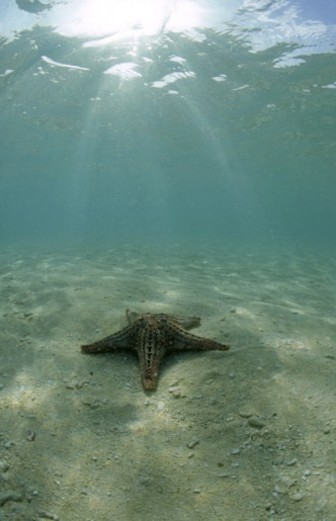MJ TinkerBell
Proud Member
- Joined
- Aug 27, 2009
- Messages
- 2,327
- Points
- 63

MJJC Legacy Project

ONE WORLD ONE OCEAN
Happy World Oceans Day !
A Sea Lion Staring Contest
[youtube]I8CcFCwCiNQ[/youtube]
Welcome to the international community’s online resource for World Oceans Day—our planet’s biggest celebration of the ocean, held every June 8th. This year, we encourage you to reach out to young people in your community and help inspire them for the 2012 theme Youth: the Next Wave for Change. Explore this site for ideas, resources, and information about how you can get involved.

WHY THE OCEAN?
The ocean is Earth's life support 50 to 70 percent of the oxygen we breathe comes from the ocean. That's more than every one of the world's rainforests combined.
The ocean is the #1 source of protein for more than a billion people. Sea life provides one fifth of the average person's animal protein intake.
The ocean regulates our climate, absorbs carbon dioxide, holds 97% of Earth's water, and supports the greatest abundance of life on our planet.
More than 60% of the world's population lives on or near the coast. The ocean provides a livelihood, recreation, beauty, wonder, and untapped scientific discovery, leading to new medications, foods, and advanced technologies.
Everyone, everywhere depends on a healthy sea.

But the ocean is in trouble 90% of the big fish are gone. Tuna, swordfish, halibut, cod, and flounder populations have been devastated by overfishing. Many of the fish caught today never even have the chance to reproduce.
The average size of the remaining big fish has been cut in half or less in the last 50 years. The average weight of a swordfish caught today is 90 lbs., down from 266 lbs. in 1960.
Discarded plastic bags and other trash have formed a toxic "plastic soup" that is gathering in five massive ocean gyres around the world. As the plastic breaks down, it is eaten by sea animals, birds, and fish, causing illness and death. It eventually enters our diets, too.
There are a reported 405 ocean "dead zones" — areas where there is little to no oxygen due to fertilizer run-off and nitrogen pollution. Dead zones are doubling every ten years.
Our oceans account for 71% of the planet, but less than 2% of our oceans are protected. We have protections in place for nearly 12% of all land (through areas like national parks).

What happens if we do nothing?
Many of the most popular seafood populations could be wiped out within 40 years.
Unless we change our rate of consumption, we're within a century — possibly even less — of a world where jellyfish are the only wild seafood option left.
The ocean is at a tipping point. Oceanographer Sylvia Earle says human actions over the next 10 years will determine the state of the ocean for the next 10,000 years.
Celebrate World Oceans Day !!
[youtube]tSEbPSrKkp4[/youtube]
World Oceans Day - Celebrate Marine Parks
[youtube]nO8l7lMOK5c[/youtube]
Ocean Heroes: Sneak Peek - Cousteau, Earle, Savage, & More!
[youtube]Ddiu0n2lhJc[/youtube]
One World One Ocean's new animated video celebrates the wonders of the ocean with stunning facts about our connection to the planet's lifeline. The video takes Mitzi and Ferdie from their home in Yosemite to places around the world before returning home to tell their friends about the adventure and all they've learned
[youtube]z1pxmcE3S8k[/youtube]
Polar Bear Handstand! [HD]
[youtube]bpzQhzSf6-I[/youtube]
Laziest Walrus Colony Ever! [HD]
[youtube]J6a0Wkq9wZE[/youtube]
Laziest Polar Bear Ever! [HD]
[youtube]WLen7tve6kg[/youtube]
Howard Hall Filming Great White Sharks - Ocean Heroes
[youtube]er2Es5SiAh4[/youtube]
TAKE ACTION

OUR GOALS FOR A BETTER OCEAN HELP US MAKE THEM A REALITY
Weekly Dive: Plastic Pollution & Seagrass Surprise
[youtube]Bu-LqSdJPzw[/youtube]
Weekly Dive: Penguins From Space & Baby Whale Boom
[youtube]oVRX3EURI60[/youtube]
Weekly Dive: Whale Rescue & Whole Foods Sustainability
[youtube]31Wmr7bS828[/youtube]
Dolphins Celebrate World Oceans Day!
[youtube]r1mq9HiCwHE[/youtube]
1. EAT SEAFOOD SUSTAINABLY
2. REDUCE PLASTIC POLLUTION
3. INCREASE OCEAN PROTECTED AREAS
SIGN UP TO PROTECT OUR OCEANS
Show your support for restoring the oceans by signing up for updates from One World One Ocean.
Together, we can save our oceans by increasing the number of ocean protected areas, changing the way people eat seafood, and reducing the use of plastics.
http://www.oneworldoneocean.org/page/s/signup

The Facebook Events
CelebrateOceans - Send a lei on Facebook for World Oceans Day! Another 1,000 and Maui Jim will donate $10,000 for World Oceans Day
https://www.facebook.com/WorldOceansDay
The Twitter Events:
#WorldOceansDay ow.ly/bs5Cy
CelebrateOceans thank you! RT @nccenviron: We pledge to recycle! #WorldOceansDay @CelebrateOceans pic.twitter.com/n7MFtOtg
The Sources:
http://www.oneworldoneocean.org/
http://worldoceansday.org/
The David Susuki Ocean Action Website
http://action.davidsuzuki.org/world_oceans_day

Sincerely your,
MJJC
Legacy
Team
Last edited:







